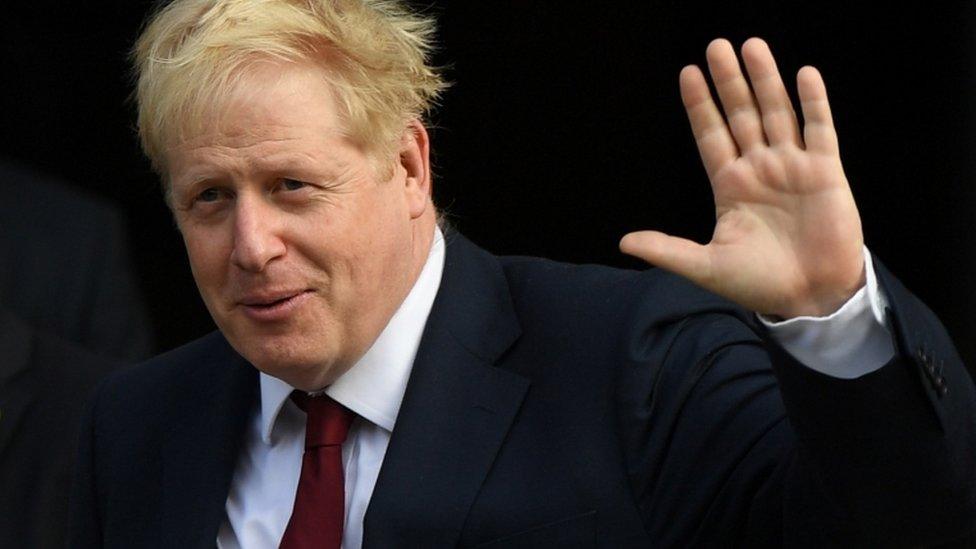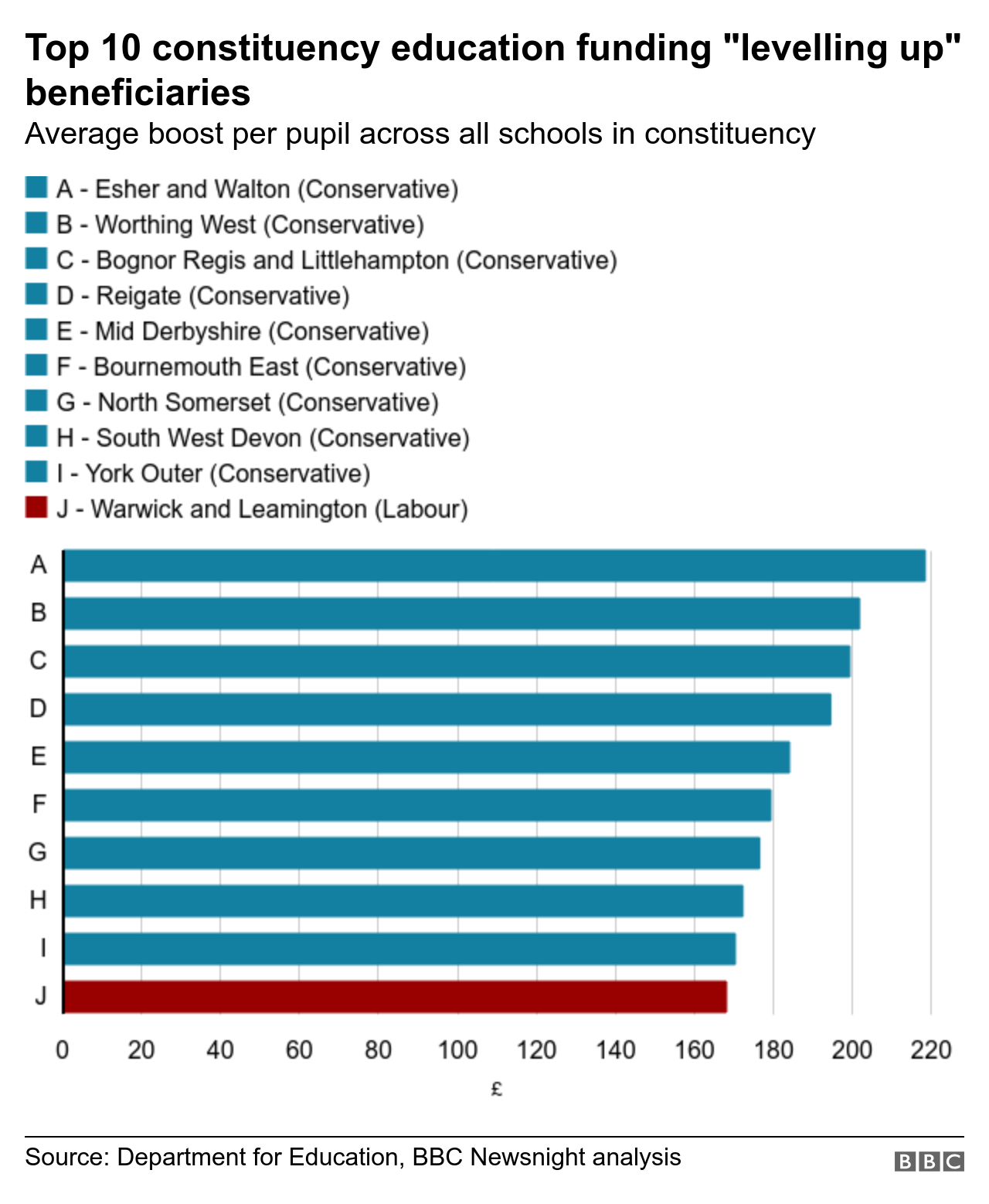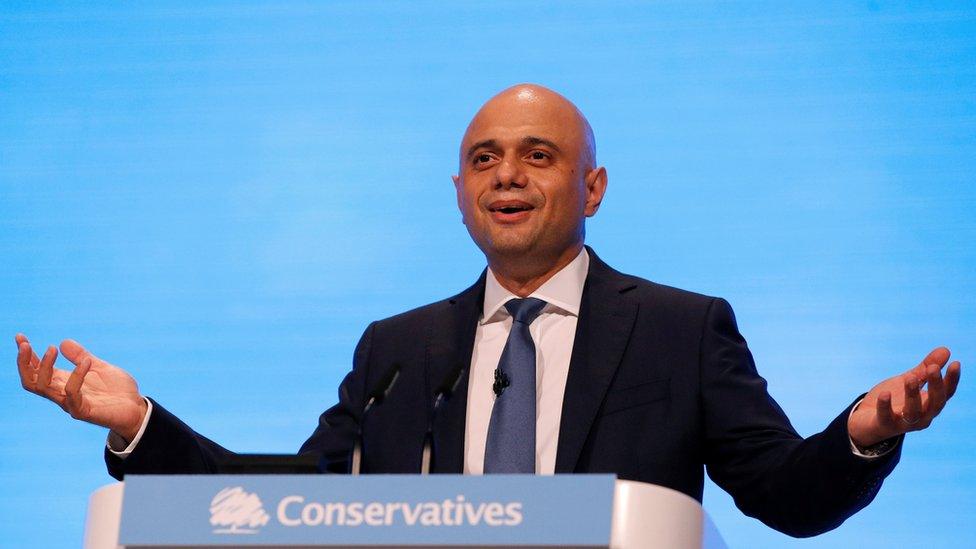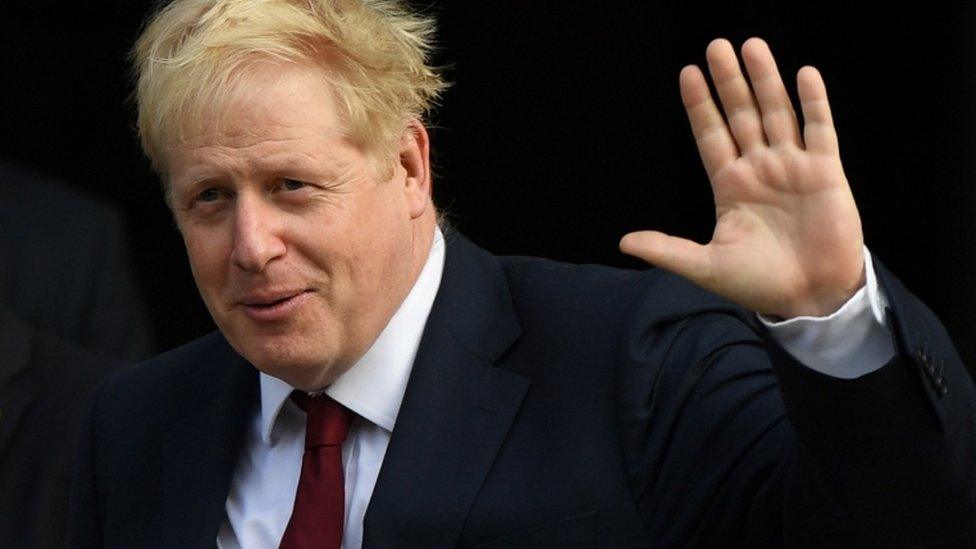Tory and marginal seats benefit most from PM's spending, data shows
- Published

Conservative-held constituencies are the overwhelming beneficiaries of Boris Johnson's increase in schools funding, data analysis by Newsnight has found.
The research also shows Labour-Tory marginal seats are over-represented when it comes to the government's promises of money for "left-behind" towns.
The analysis sheds light on the Conservatives' targeting strategy at the next general election, which Boris Johnson wants to take place as soon as possible.
Downing Street denied government investment was focused on areas with Tory MPs - pointing out that historically under-funded areas were benefiting most from school investment and a number of different factors were taken into account for the towns' scheme.
The Conservatives have made a raft of spending announcements at their party conference in Manchester. But Boris Johnson's government has been making spending pledges since July and Newsnight has been tracking where that money will go.
Earlier this month, the Treasury's spending review committed the government to "level up" funding for every primary school to a minimum of £4,000 per pupil by 2021-22 and £5,000 per pupil in secondary schools.
Analysis shows that nine of the top 10 beneficiaries - in terms of boost per pupil in cash - are in Conservative-held constituencies.
All but four of the 36 seats which get no uplift at all from this additional spending are Labour held, although they tend to have a higher level of base funding.
"Levelling up doesn't mean addressing social inequality," said Natalie Perera of the Education Policy Institute.
"In this context, it means bringing generally more affluent schools up to the same level of funding as more disadvantaged schools."
She said it was "reasonable to say" that the latest announcement targets "more funding to more affluent and generally more Conservative areas".


The government has also announced plans to boost spending in "left behind towns" and to support struggling High Streets around the country.
But a considerable share of the money appears to be going to marginal seats - where Labour is ahead of the Tories or the Tories have a relatively slim lead of less than 10% of the vote.
Of the 108 constituencies set to benefit from the Towns Fund, 61 have majorities of less than 5,000.
The same is true of the 25 out of 57 constituencies that benefit from the additional Future High Streets Fund announced in August.
Only a quarter of all UK constituencies are marginal by the same definition.
Around half of the Towns Fund and Future High Streets Fund beneficiaries also had a Leave vote in 2016 of more than 60%.
Only a quarter of all UK constituencies had a Leave vote that high in the 2016 EU referendum.
'Politically motivated'
Prof Will Jennings, of the Centre for Towns, highlighted places such as Swindon - a marginal area - on the list of Towns Fund beneficiaries that don't "fit the mould" of "left behind towns".
But he added that "this fund isn't complete pork barrel politics" - political jargon for spending government money locally in order to win votes.
"One can spend a lot of time focusing on the electoral politics of towns funds... inevitably those sort of seats have quite a high concentration of marginal seats, where the next election will be won or lost," he said.
And Cathy Parker of Manchester Metropolitan University said: "Most of the towns on the list are associated with a high level of deprivation."
Other spending commitments, since Boris Johnson became prime minister, have included an extra £50m financial support for Scottish farmers.
Nick Fenwick of the Farmers' Union of Wales suggested to Newsnight that this could be "politically-motivated" given the risk to the 13 constituencies held by Conservatives in the next election.
The government said the farming funding followed the recommendations of an independent review and aimed to "ensure all parts of the UK are treated fairly".
It added the High Street funds followed a fair and open bidding process based on published guidance, while every school in England funding would see an increase in funding.
A Downing Street spokesperson said voters wanted the government to deliver Brexit and focus on domestic policies and it was "determined to invest in our infrastructure, high-streets, NHS and schools across the country".
You can watch Newsnight on BBC Two at 22:30 on Thursday. Catch up on iPlayer, subscribe to the programme on YouTube, external and follow it on Twitter, external.
- Published30 September 2019

- Published30 September 2019

- Published29 September 2019
